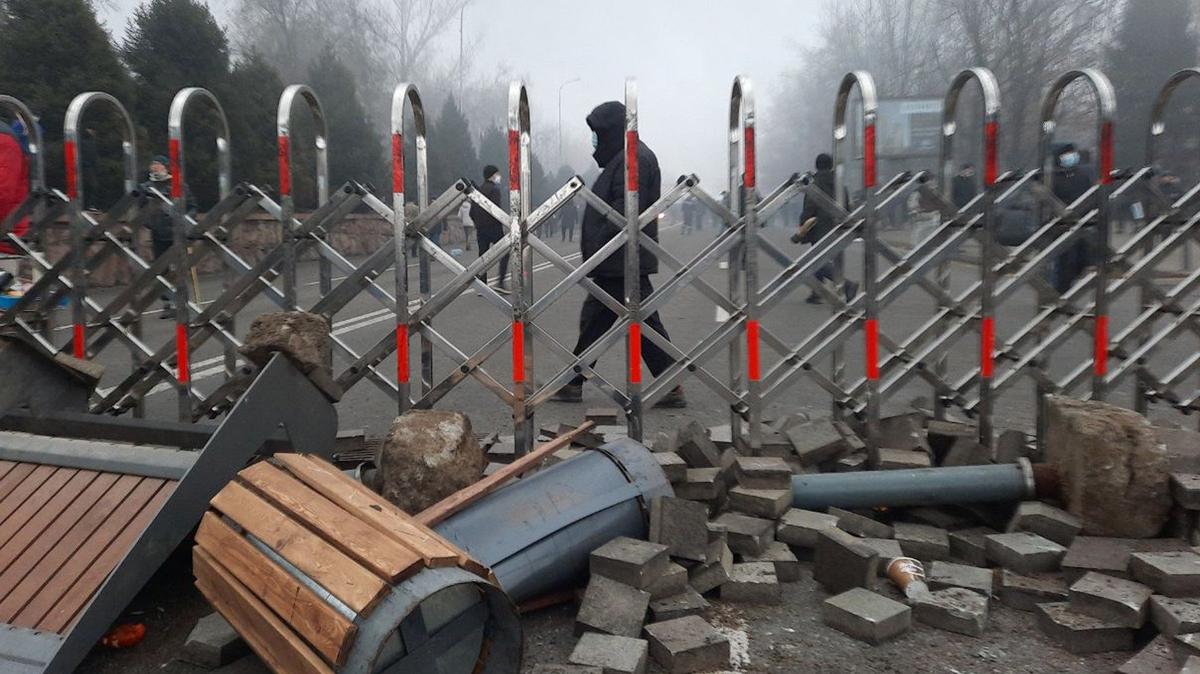Early on January 2, 2022, residents of the oil city of Zhanaozen peacefully gathered to protest a significant rise in the selling price of gas for cars, which are heavily used in the region, which was caused by manipulations on electronic trading platforms. The requests were straightforward—to bring the cost of fuel back to reasonable levels. Local authorities decided to get away with general excuses about the new economic course and market pricing. The people did not appreciate it…
By January 4, rallies were raging throughout almost all of the country, and initial local demands for lower energy costs were replaced by a nationwide ultimatum to carry out large-scale political and socio-economic reforms in the country and remove the clan of Nursultan Nazarbayev, the Yelbasa and architect of the modern independent republic, from power and access to national wealth. The President of Kazakhstan, Kassym-Jomart Tokayev, considered to be Nazarbayev's «soft» successor, reacted immediately by imposing a state of emergency in all regions of the country and assuming the post of chairman of the Security Council, ousting Yelbasa.
In his new capacity—not just as a formal president, but as the head of the entire executive power hierarchy—he addressed the people:
«About half of the territory of our country is engulfed in unrest. The situation is particularly difficult in Almaty. It is noteworthy that the hooligan elements are highly organized. This indicates a carefully thought-out plan of action by the conspirators, who are financially motivated. I re-emphasise «the conspirators». From today, I intend to act as tough as possible. This is a question of the security of our citizens, who appeal to me with requests to protect their lives. It's a matter of our state security as well. I'm sure the people will support me. Whatever happens, I will be in the capital. It is my constitutional duty to be together with the people.»
The new leader appeared calm and confident, with no nervous trembling in his intonation—everything was going according to plan. At the end of his address, he thanked the law enforcement officers for repulsing extremist elements and promised to return to the people with suggestions for political transformation of Kazakhstan.
An hour later, president Tokayev accepted resignation of the Nazarbayev government and announced popular anti-crisis measures — the introduction of price regulation and a moratorium on tariff increases for six months, the launch of an investigation into cartel collusion, and finally the establishment of a public fund with characteristic name «To the People of Kazakhstan». Special attention at the government meeting was paid to reports from the State Prosecutor and the Minister of Internal Affairs, but most importantly, the Chairman of the National Security Committee (NSC) Karim Masimov.
Immediately after the meeting, Murat Nurtleu, the deputy head of Tokayev's administration, was transferred to the post of the first deputy chairman of the NSC, and Yerlan Karin took the post of the secretary of state — the pace of appointments of the new leader's associates, coupled with the proclamation of socio-economic reforms, looked like a sure sign of stabilization of the domestic political situation. However, further events all happening within a few hours of the announcement — the escalation of protests and the appearance on the streets of Almaty of armed groups which began to assault government institutions, including the mayor's office, as well as small arms arsenals — brought President Tokaev back to reality.
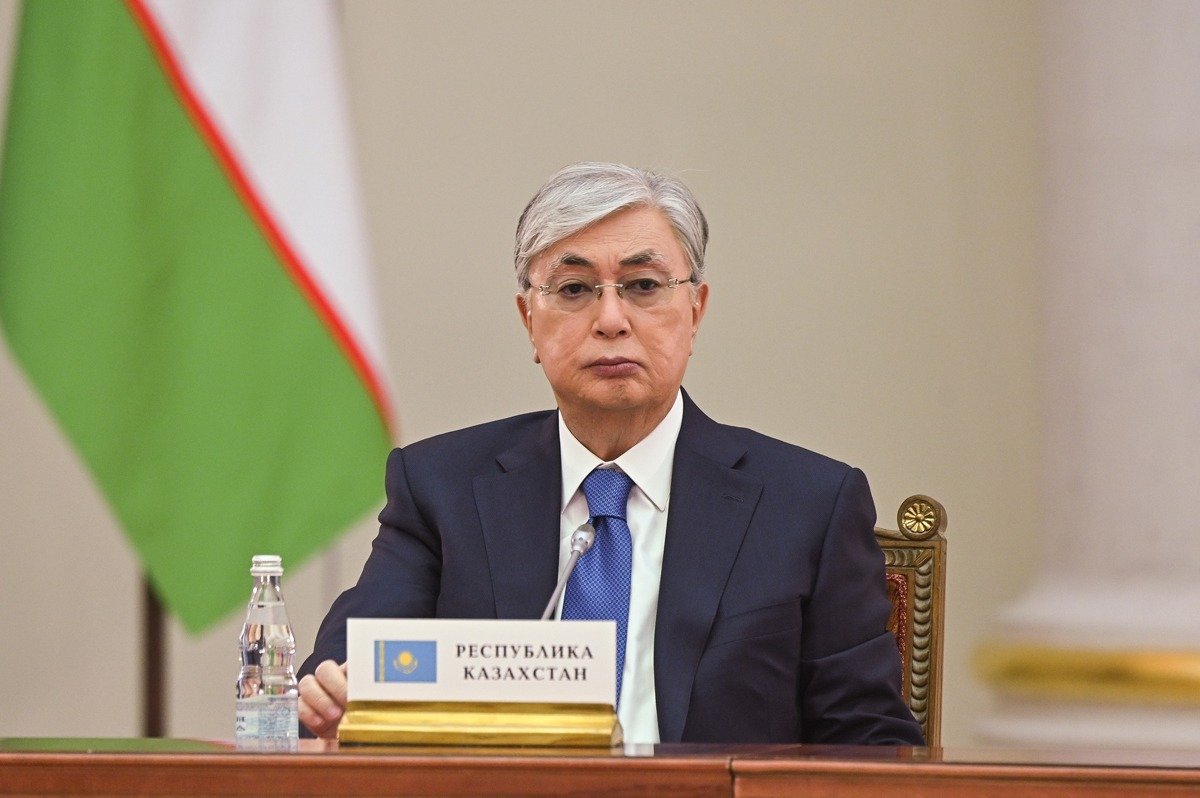
Photo: Evgeny Biyatov / POOL / TASS
«Calls to attack the offices of civilian and military agencies are completely illegal. This is a crime that will be followed by punishment. The authorities will not fall. Yet, what we need is not a conflict, but mutual trust,» — in another address to the people, the tone of the head of state changed greatly, as he had already received information about the seizure of a number of key facilities in Almaty, including its international airport with five airplanes.
On the morning of January 6, the president ordered the armed forces to be put on high alert and to form a special investigation group «to determine the causes of the events» to protect diplomatic missions and offices of foreign investors, and to keep foreign communication channels open. The latter apparently changed the president's attitude to the events and forced him to make unplanned decisions—the head of the presidential guard, the commander of the Special Forces, the head of the Special Forces Service «A» and the chairman of the National Security Committee lost their posts overnight.
In the evening, as Kazakh Military units of the Air Assault Forces fought fierce battles with outnumbered militants, Tokayev called an emergency meeting of the Security Council at the presidential residence in Akorda.
Having previously maintained his composure, he now looked nervous, and his speech became slurred and rambling.
«The attacking gangs are essentially international gangs that have undergone serious training abroad and their attack on Kazakhstan should be considered an act of aggression. In this regard, relying on the Collective Security Treaty, today I appealed to the heads of state of the CSTO to assist Kazakhstan in overcoming this terrorist threat. In fact, it is no longer a threat — it is an undermining of the integrity of the state,» the president said, already knowing that 232 people were killed as a result of the terrorists' actions, including 19 security officials.
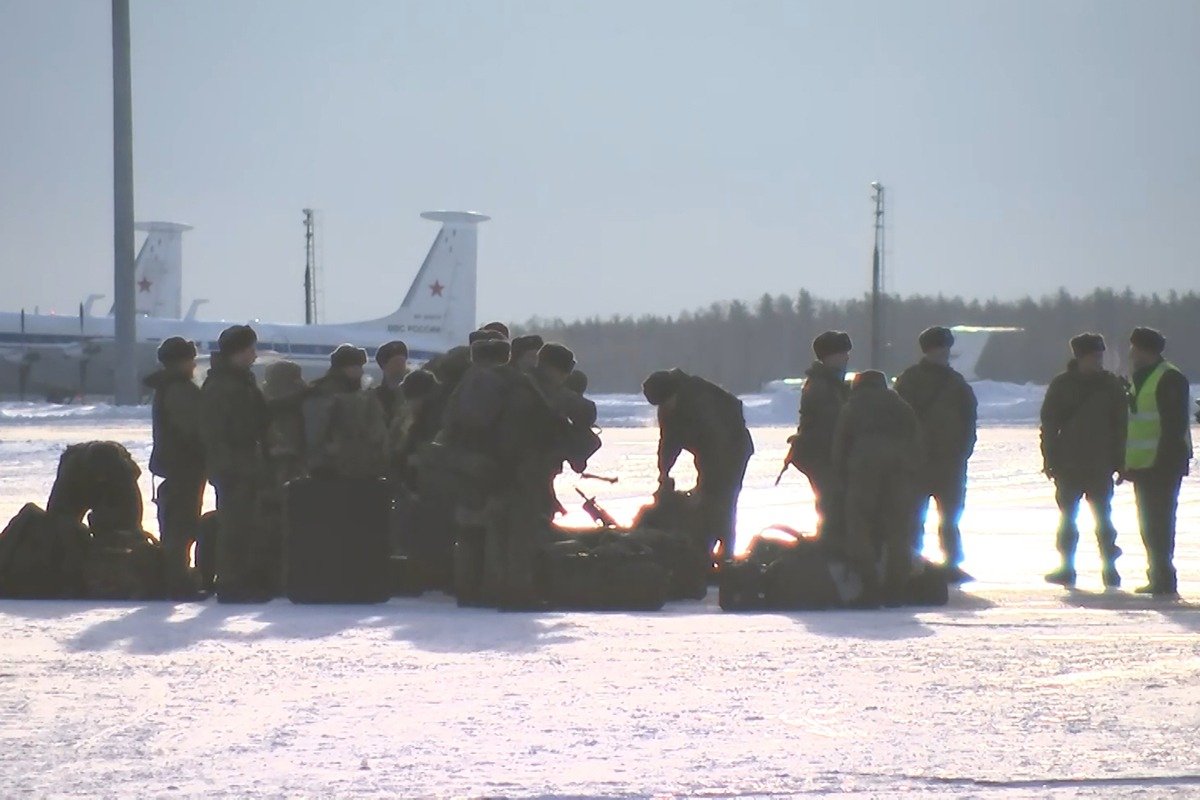
Departure of the main forces of the Russian CSTO peacekeepers to Kazakhstan. Photo: Ministry of Defense of the Russian Federation / TASS
By January 7, when the CSTO Collective Peacekeeping Force of 2,030 men and 250 pieces of equipment arrived in the capital, the protests had been largely suppressed. Tokayev would quite eloquently describe the role of peacekeepers, as well as the reason for turning to them, in his January 10 statement, which he delivered via teleprompter at an extraordinary session of the CSTO Council:
«The aggression covered eleven regions simultaneously, but the main blow was directed against Almaty. As you know, this is our largest city and the financial center of the country, where the most important transport and communication hubs are concentrated. The fall of this city would have opened the way to the capture of the entire densely populated south, and then the entire country. The terrorists hoped to draw away the forces of law and order to then strike at the capital of Kazakhstan. We saw groups of militants around the presidential residence… After learning of the arrival of three military transport planes in the capital, the militants abandoned their plans to seize it.»
The arrival of the peacekeepers allowed Kazakh military to move into Almaty, where the mopping up of the city and the destruction of the remnants of the resistance began. In his last public address, Tokayev seemed to be in better spirits. He reiterated his command to the military and law enforcement to «shoot on sight without warning» and also pledged to conduct a thorough investigation to determine who is responsible.
«It is crucial to understand why the state «slept through» the secret preparation of terrorist attacks by dormant cells of militants. Almaty alone suffered attacks by 20,000 bandits. Their actions demonstrated the existence of a well thought out plan, seamless coordination, high combat readiness, and brutal savagery. It appears they were all trained and directed by only one central command center.»
Just one day after president’s statement, the public was presented with exactly that in the person of the chairman of the National Security Committee Masimov, who was arrested on suspicion of high treason for attempting to stage a coup.
Several dozen people, including government officials, politicians, businessmen and activists, were also taken into custody, having been accused of numerous crimes ranging from kidnapping and torture to organizing criminal networks and mass riots. In total, Kazakh investigative authorities have initiated 125 criminal cases.
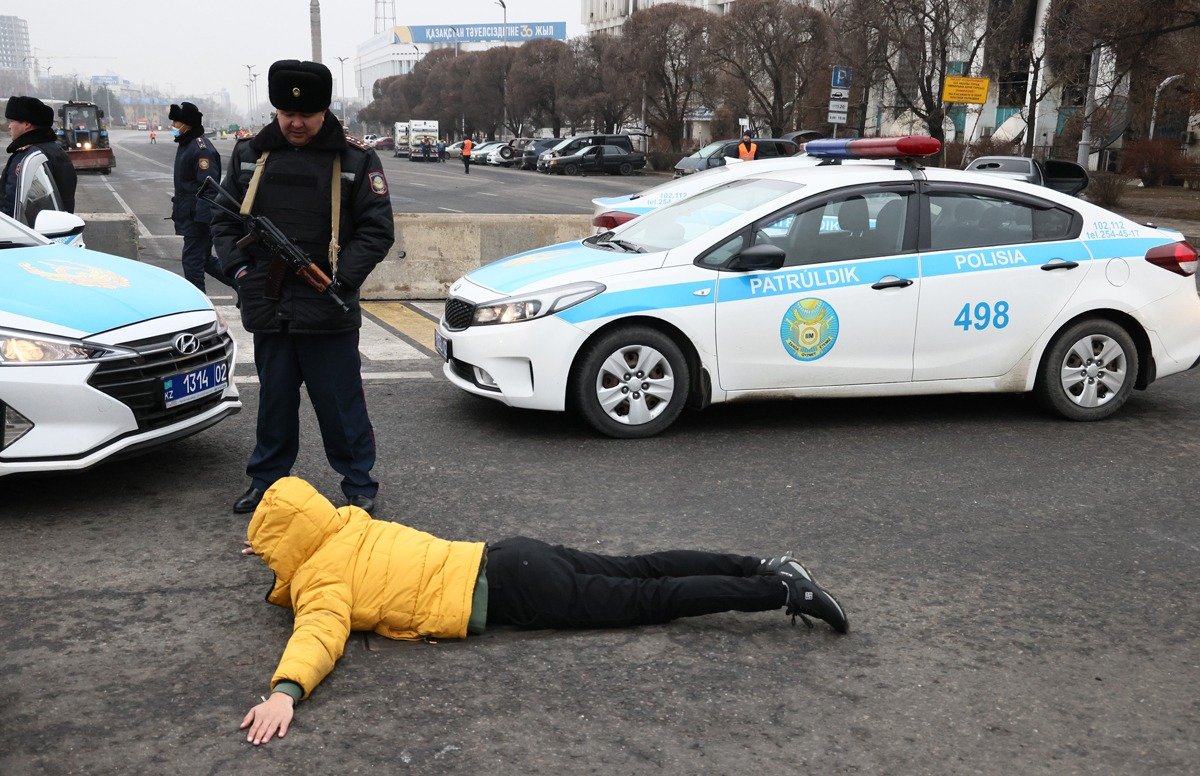
Alma-Ata. Photo: Valery Sharifulin / TASS
«In the near future, after the preliminary investigation is completed, we will present the evidence of the preparation and implementation of the terrorist aggression against our country to the world community,» Tokayev promised the CSTO Council.
Later, during a discussion with Charles Michel, the President of the European Council, Tokayev would clarify that the majority of the terrorists responsible for January events travelled to Kazakhstan from Central Asian countries, primarily Afghanistan. However, none of the individuals implicated in the criminal cases would have any connections to international terrorism.
Kazakh authorities interpreted the international community's call for an «impartial and independent» investigation of the January events in a unique manner.
After nearly two years of investigation, only a handful of criminal cases were prosecuted against top officials who were defendants in the case of mass riots.
At the same time, Human Rights Watch reports that following the events in January, there was a crackdown that led to «mass arbitrary arrests» and imprisonment. During this time, activists and citizens who were not involved in the protests suffered from brutal treatment. In total, more than five thousand criminal cases were initiated on allegations of violent crimes.
These facts had little correlation with the proclaimed political course for establishment of the «New Kazakhstan», a course based on rejection of Nazarbayev's archaic domestic policy and the primacy of the power of clans over the rule of law. In reality, Tokayev chose the path of a politician who uses «half-measures» within a stable autocratic regime: instead of nationwide reforms—economic concessions, instead of new personnel policy — high-profile resignations of personalities from Yelbasa's entourage. And although Nazarbayev himself lost his status and privileges (Tokayev even assuming the chairmanship of the ruling «Nur Otan» party), not all of his associates were removed from the sphere of state power and budgetary benefits.
Perhaps these are the requirements of the process of inheriting the Yelbasa title, which prohibits airing dirty laundry in public.
By amending the constitution, the president extended his term of office to seven years and in November 2022 secured re-election for a new extended term. However, the voter turnout even in his hometown of Almaty, was insufficient to indicate significant «popular support.»
Tokayev can look forward to his chairmanship of the SCO and the CSTO ahead of him but at the same time, he will be facing high-profile trials of those arrested in connection with the events of January 2022.
At the end of the second year of preliminary and judicial investigation, only a small number of the executors of the orders are on trial, but at the same time there are a large number of people whose prosecution looks doubtful.
Especially since all the court cases dealing with January events and their implications are closed to the public.
«Novaya Gazeta» examines some of the most resonant cases.
- Reasons for prosecution: High treason, abuse of office, organizing mass riots, organizing a criminal organisation
- Persons prosecuted: former Chairman of the National Security Committee Karim Masimov, former Minister of Defense Murat Bektanov, former head of the 5th Department of the 4th Service of the National Security Committee Ruslan Iskakov, former deputy of Almaty Maslihat Kairat Kudaibergen, former world boxing champion Arman Dzhumageldiev, former deputy head of the National Security Committee Daulet Yergozhin, former head of the National Security Committee's Service «A» Anuar Sadykulov.
- Official version: On January 4, 2022, protesters, extremist elements, and gangs took to the streets of Kazakh cities to seize power, prompting the political leadership to reject negotiations and harshly suppress the riots. However, according to the investigation, some security officials, including top leadership, sabotaged the order. Only the introduction of CSTO peacekeeping units forced them to act.
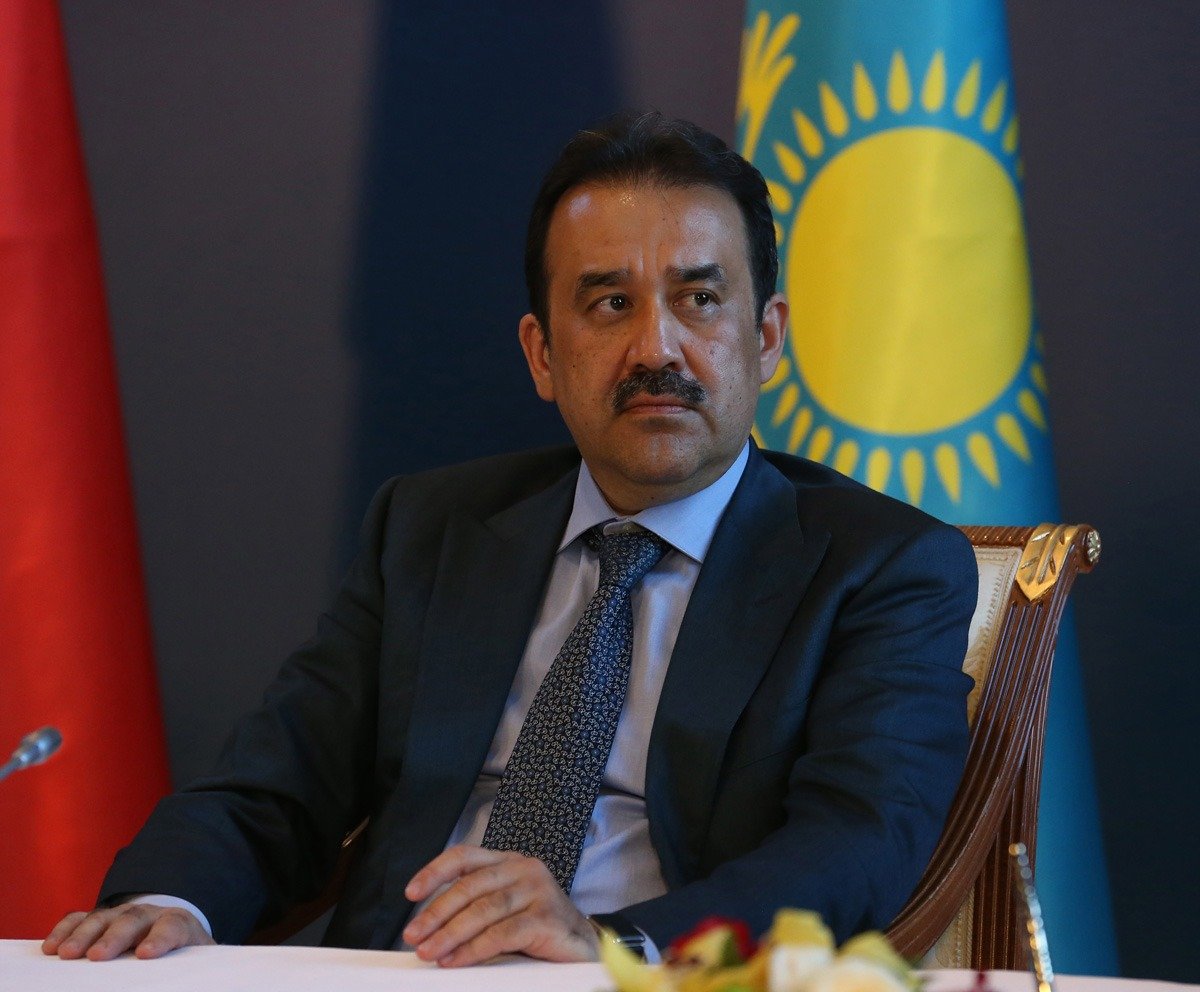
Karim Masimov. Photo: Ekaterina Shtukina / TASS
Virtually immediately after the suppression of the protests — on January 8, 2022 — Karim Masimov, the chairman of the republican National Security Committee, was arrested on suspicion of high treason, abuse of office and attempted violent coup. Some of his subordinates were charged with high treason and attempted coup, abuse of office and bribe-taking on an especially large scale. Masimov was sentenced to 18 years of imprisonment with service in a maximum-security facility.
The former head of the Ministry of Defence Murat Bektanov was charged with abuse of office ("left the republic's strategic military facilities unprotected") and sentenced to 12 years' imprisonment with service in a maximum security facility.
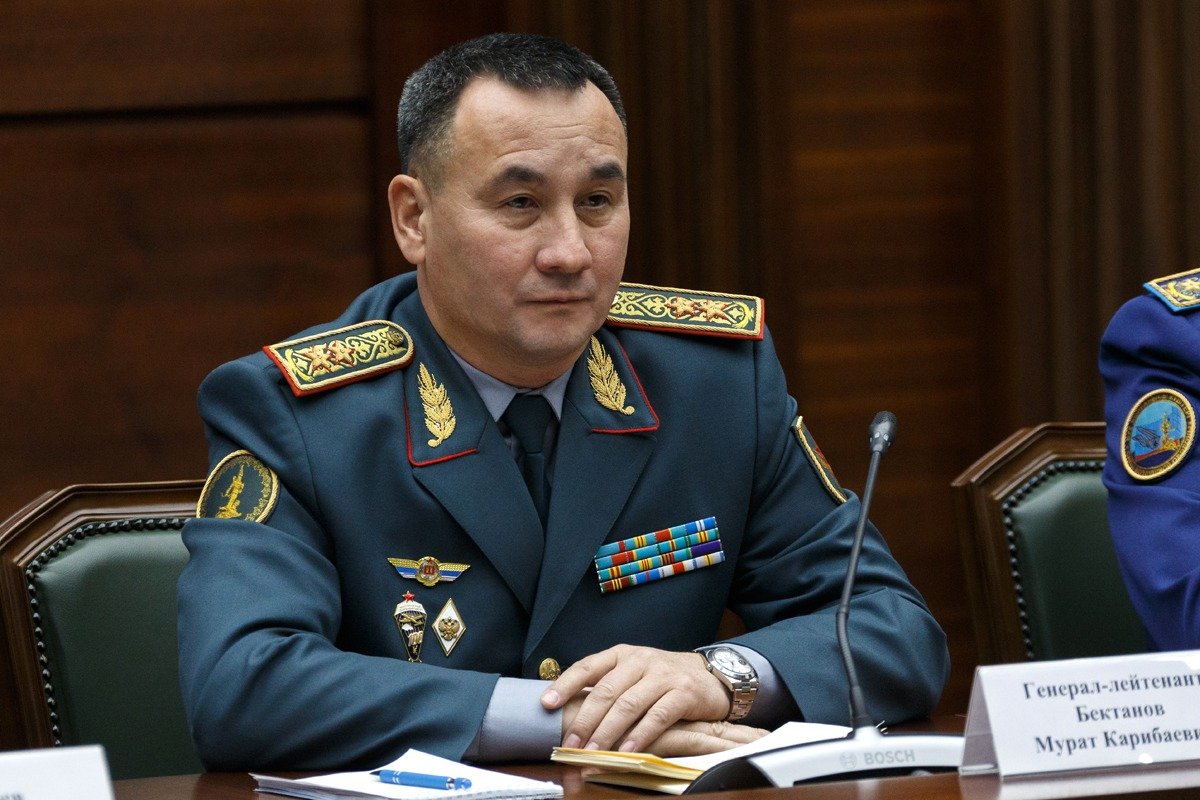
Murat Bektanov. Photo: Vadim Savitsky / press service of the Ministry of Defense of the Russian Federation / TASS
Kairat Kudaibergen, a businessman, founder of Q3 Group of Companies, and a deputy of the Almaty Maslihat, was accused of organizing and participating in the riots, although in fact he urged the people who took to the streets to calm down and even clean up the city squares. As of this date, no sentencing has taken place.
Former world boxing champion Arman Dzhumageldiev, often described by Kazakhstan's pro-government media as an «authoritative businessman,» was accused of kidnapping and holding 24 people in Almaty hotels.
According to the investigation, one of the detainees died as a result of torture. Dzhumagaldiev suffered severe beatings during his detention and was subsequently tortured in his cell. Despite being publicly accused of crimes by the Prosecutor General in January, he maintains his innocence, a Kazakh presumption of innocence in action, so to speak. To date no sentence has been issued.
Ruslan Iskakov, head of the 5th Department of the 4th Service at the National Security Committee, was responsible for counterintelligence support and combatting organized crime groups. However, Iskakov has been accused of creating a criminal association and gangs that initiated pogroms and riots in the capital of Kazakhstan. Iskakov admits no guilt. No sentence has been pronounced.
- Question: did the former chairman of the National Security Committee really try to seize power in the country?
According to the official account, he purportedly acted without agreement from his long time leader and patron, Nursultan Nazarbayev.
The role of Yelbasa in the January events continues to be a missing piece in the investigation's conclusions, nearly two years later. Masimov's silence evidently implies that the country’s current political leadership has no intention of filling this historical void.
The only high-ranking officer of the National Security Committee who actively defended himself during the investigation was the former head of the 5th Department, Ruslan Iskakov. During the past year, he wrote two public appeals to the president where he exposed the falsification of evidence and the inducement of the Chairman of the National Security Committee to incriminate him. Additionally, he spent six months in solitary confinement, went on two hunger strikes for 70 days in total, and once was poisoned and spent 19 hours unconscious in intensive care. In his testimony, Iskakov stated that while suppressing the riots, he followed the orders of Samat Abish, the then deputy Chairman of the National Security Committee and Nazarbayev's nephew. Abish was dismissed from his position but managed to evade prosecution.
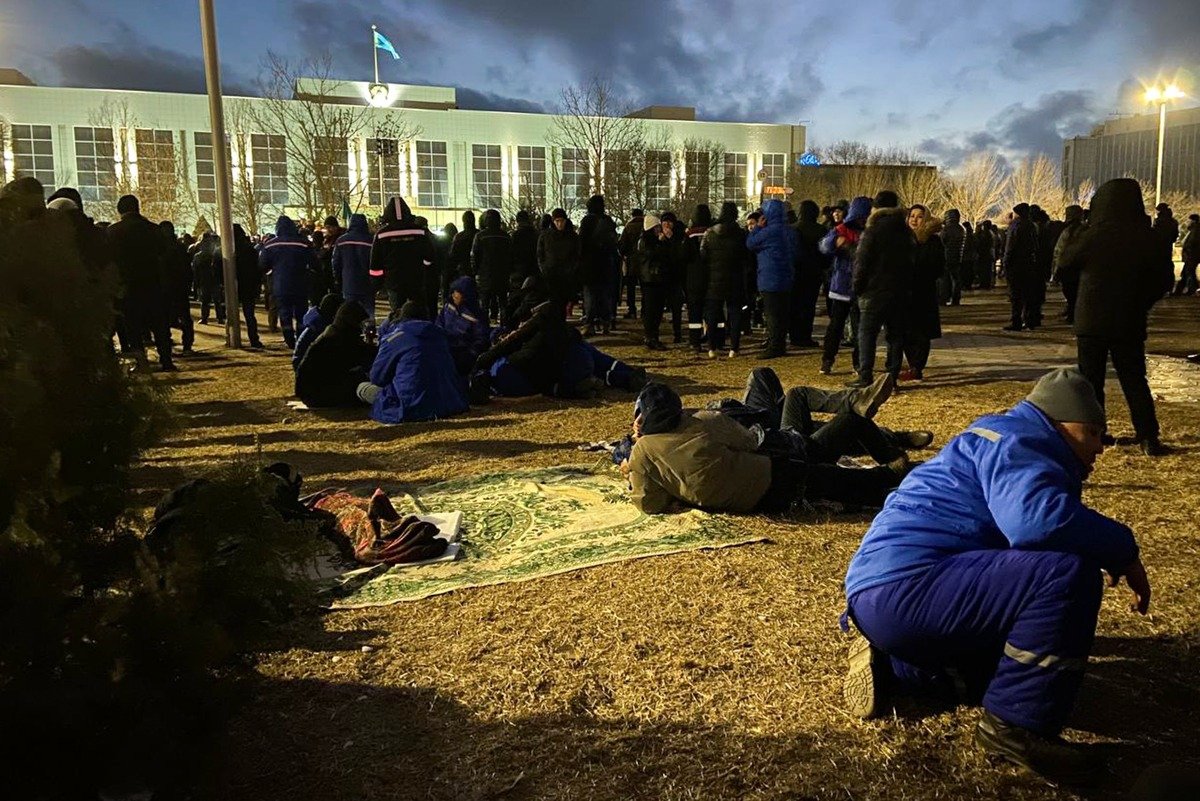
Protests in Kazakhstan. Photo: Orda.kz / TASS
- Reasons for prosecution: Organizing mass riots.
- Persons prosecuted: history teacher Kalas Nurpeisov, activist Aigerim Tleuzhan, public figures Nurlan Dalibayev, Yermukhamet Shilibayev, Zhan-Aidar Karmenov.
- Official version: On January 5, an unknown group of men breached the flight harbour in Kazakhstan's capital to allow for more foreign militants to enter the country. The Prosecutor General's statement identified two men: Nurpeisov and Tleuzhanov as «religious extremists» who «instigated the riot and attempted to obstruct aircrafts».
- Question: who is this (man) «extremist Tleuzhanov»?
Ms. Algerim Tleuzhan, a female Kazakh activist, was detained and sentenced to four years in prison. Why was she misgendered and deemed an extremist? The Prosecutor General has labelled her as such. The quality of investigation in relation to all other parties was of similar quality, but nonetheless Kalas Nurpeisov, Nurlan Dalibayev, Yermukhamet Shilibayev and Zhan-Aidar Karmenov were all sentenced to eight years in prison.
- Another question: Why did Almaty need foreign pogromists during the January events when riots occurred in at least 16 other cities in Kazakhstan?
Obviously, political repression in Kazakhstan follows a similar pattern to that in Russia or Belarus: Anyone who challenges the authorities is deemed to be under foreign influence.
- Reasons for prosecution: participating in an extremist movement and financing of extremism.
- Persons prosecuted: journalist Duman Mukhamedkarim, super marathon runner Marat Zhylanbaev.
- Official version: a journalist and a popular athlete in Kazakhstan participated in the «Democratic Choice of Kazakhstan», a movement recognized as extremist in the republic, which is financed by opposition oligarch Mukhtar Ablyazov, calling for nothing less than revolution. They participated by spreading extremist ideas among Kazakhstanis.
Mukhamadkerim remains in pretrial detention, while Zhylanbaev has been sentenced to seven years despite a highly publicized trial. Notably, the marathon runner sewed his mouth shut in protest.
- Question: Is it likely that Mukhamadkerim and Zhylanbaev were prosecuted not for extremist but for political and human rights activities?
After all, Zhylanbaev tried to register as candidate for a deputy position in the Majilis promising to use his future mandate to conduct an independent investigation of the January events. And Mukhamadkerim actually conducted such an investigation. His Youtube channel regularly featured videos of victims of the brutal actions of security officials. In other words, an attempt to understand the real circumstances of the January tragedy is itself considered a crime.
- Reasons for prosecution: abuse of office, torture.
- Persons prosecuted: security officials
- Official version: The use of excessive force against peaceful protesters and instances of torture by security forces were not prevalent, and isolated occurrences were under investigation and legal evaluation.
- Question: why were only 25 people convicted for torture?
In 2022, approximately 800 cases of torture were resolved in Kazakhstan. Additionally, 25 law enforcement officers were convicted under this article in the past two years for offenses unrelated to the January tragedy. These tragic events were caused not only by the actions of the rioters but also by those of security officials.
Anyone who walked out on the street during the first days of January 2022 ran the risk of being detained in a police station that transformed into a bona fide torture chamber, reminiscent of the infamous Minsk «Okrestino.»
Moreover, police officers who perpetrated heinous crimes were tried and convicted under the «Torture» or «Abuse of Office» charges. For example, Yeldos Kuliev was beaten to death in one of the police stations. The young man was brought to the police for violating curfew. His murderer, operative Aidyn Azanbaev, received six years under the «torture» article.
Subordinates of Officer Arman Zhuman, of the Kazakh armed forces, fired shots at a civilian vehicle, leading to the death of a four-year-old girl and injuring her sister who got seven gunshot wounds. Zhuman faced trial on the grounds of abuse of authority, and was later acquitted.
This is the sole case that has gone through a trial process over the military killing of civilians, despite their bullets claiming lives of more than twelve individuals in January 2022.
Andrey Sukhotin
P.S.
In Kazakhstan, international human rights organizations face fewer restrictions compared to Russia or Belarus. Nevertheless, with the exception of Human Rights Watch, they tend to turn a blind eye to politically motivated oppression in Kazakhstan. For instance, Amnesty International's website lacks a report on the status of human rights observance in Kazakhstan in 2022. The organization's representatives' statements regarding the «post-January» repressions in Kazakhstan are not publicly available.
Добавляйте в Конструктор свои источники: сайты, телеграм- и youtube-каналы
Войдите в профиль, чтобы не терять свои подписки на разных устройствах
